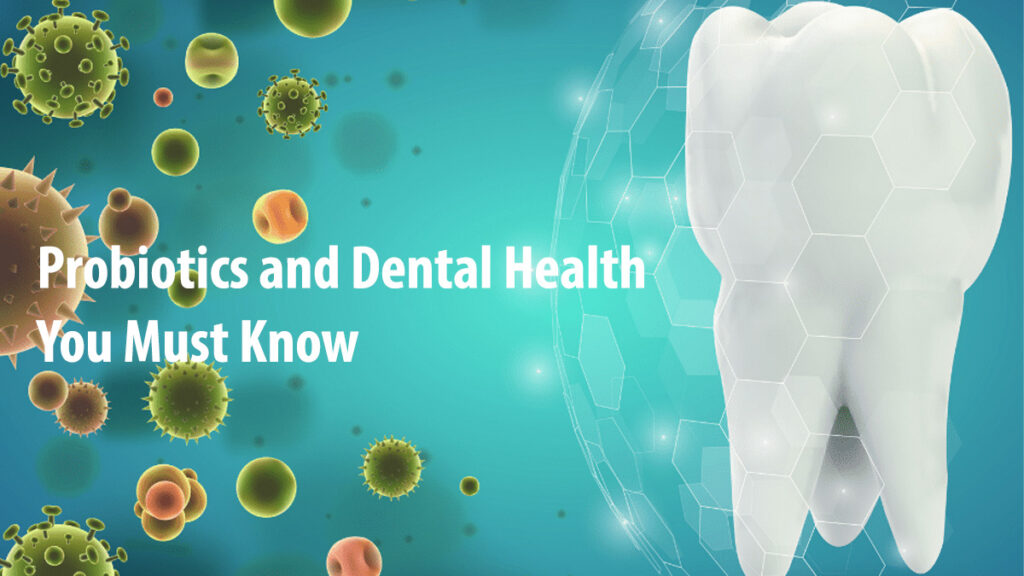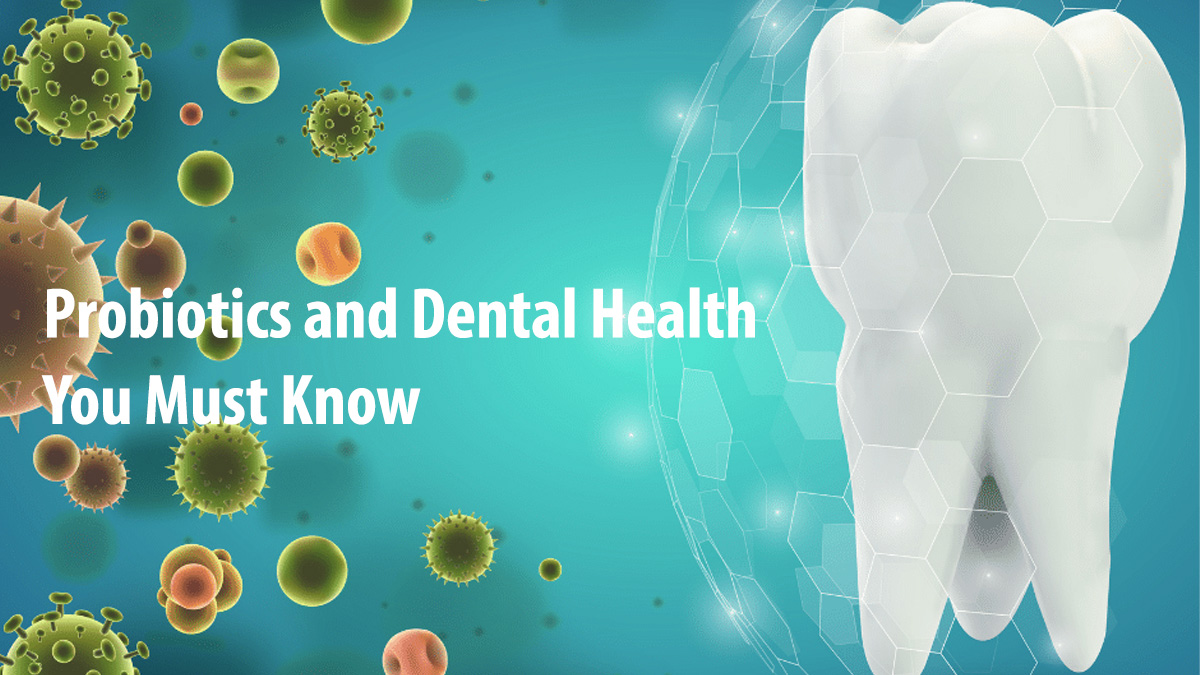We often think of probiotics as a way to improve gut health, but they have been shown to help improve oral health as well. This is because your mouth contains a bacterial microbiome, and this bacteria influences your entire health.
According to the creator of Prodentim, oral probiotics can promote the growth of good bacteria and reduce the production of harmful bacteria. This helps prevent gum disease, tooth decay, and bad breath.
Reduces the Risk of Tooth Decay
During the first few weeks of life, babies are introduced to a range of probiotic bacteria in their mother’s milk. These microbes help support the body’s natural immune system and aid in nutrient absorption.
The human gastrointestinal tract (GIT) hosts about 2,000 different species of bacteria, all designed to perform various functions. Some of these microbes promote health and some contribute to disease.
For instance, a bacterium called Streptococcus mutans produces acids that can lead to tooth decay by solubilizing apatite crystals found in dental enamel. This mineral helps strengthen teeth, but it can also erode the enamel.
This is the main reason that oral hygiene is so important – if you don’t keep your mouth healthy, it will start to break down and your teeth may eventually fall out.
Probiotics can help you achieve your optimal oral health by crowding out bad bacteria and promoting the good guys. They have several impressive properties, including rebalancing the oral microbiome, improving immune function and preventing and treating a host of diseases, infections and other conditions that can be triggered by poor microbial colonisation.
The best probiotics for the mouth are formulated to provide the ideal balance of friendly bacteria and antimicrobial activity. Specifically, they are designed to target the most harmful oral pathogens and prevent them from causing disease in the first place.
There are many different types of probiotics, but the most well-known include the lactobacillus and bifidobacterium strains. These have been shown to be effective in reducing gum inflammation, gingivitis and preventing tooth decay.
Reduces Bad Breath
There are a variety of probiotic strains that have shown to help reduce bad breath, including Lactobacillus, Bifidobacterium, and Streptococcus salivarius. These bacteria have been shown to reduce volatile sulfur compounds (VSCs), which are a common cause of bad breath.
These compounds are formed in the mouth when bacteria metabolize proteins in food and salivary glands. The resulting VSCs increase the pH of gum pockets and reduce oxygen levels, which attract more anaerobic bacteria. As the anaerobic bacteria grow, they also release more foul-smelling compounds, which irritate your tongue and throat.
However, a number of studies have shown that taking probiotics can significantly reduce VSCs in your mouth. In fact, 85% of people who took oral probiotics saw a reduction in these compounds after just one week of taking them.
Oral probiotics are supplements that contain living microorganisms and can be taken by mouth in the form of tablets, gummies, capsules, or lozenges. They can be used to help combat halitosis, gingivitis, and other oral health issues.
The best way to start is by talking to your dentist about what kind of dental probiotics are right for you. They can give you advice on which probiotics to take and how much to take. Some people may require a higher dosage than others to see the best results.
Many people take a daily probiotic in the form of a chewable lozenge like Prodentim that is chewed or sucked on before brushing and flossing. This gives the probiotics a chance to colonize your mouth and control bacterial growth.
Another way to get probiotics into your body is by eating fermented foods, such as yogurt and sourdough bread. These can be especially beneficial when you suffer from bad breath, as the good bacteria in these foods can help to reduce the odor-causing VSCs and other harmful bacteria in your mouth.
In addition to reducing VSCs, many probiotics have been found to improve dental health and prevent periodontal disease. In a recent study, for example, researchers found that oral probiotics can reduce gingivitis, halitosis, pharyngitis and other oral health conditions. They can also reduce the risk of tooth decay, which is one of the leading causes of bad breath.
Reduces Gingivitis
Probiotics are bacteria that can improve your dental health and reduce the risk of developing gum disease and other health problems. They are also helpful for controlling bad breath and preventing cavities.
Probiotic strains are designed to crowd out the bad bacteria in your mouth. Specifically, they have been shown to reduce the amount of acidic plaque in your mouth, which leads to tooth sensitivity and erosion.
In fact, studies have shown that oral probiotics can reduce the symptoms of gingivitis and gum bleeding and may even prevent or stop cavities. They can also reduce the growth of the fungus that causes oral thrush, or candida.
The bacteria in probiotics have also been shown to produce different cytokines, which can control the immune system and dampen the inflammation associated with gum disease. Some of these cytokines include IL-10, HO-1, and LcrV. These cytokines can inhibit the release of pro-inflammatory molecules like MMP-8 and TNF-a.
A 2006 study showed that taking a probiotic supplement containing Lactobacillus reuteri reduced gingivitis symptoms in people with the condition. The people who took the highest dose of probiotics also had less plaque in their teeth.
Another study found that taking a probiotic milk daily decreased the amount of inflammation in patients who had gum disease. These supplements help keep the immune system healthy and can be taken in capsules, tablets, powders, or gummies.
Some probiotics are made from a combination of strains, while others are specific to a particular bacteria species. The most effective ones are those that contain more than one type of bacterium.
For instance, Prodentim’s Oral Probiotic and Prebiotic is a blend of three good bacteria: M18, K12, and L. Reuteri, which have been shown to reduce the number of plaque-producing bacteria in your mouth and fight off bacteria that cause halitosis.
In addition to these bacteria, a lot of studies have shown that some probiotics are capable of reducing the level of inflammatory markers in your mouth, as well as decreasing the amount of tartar. These bacteria are especially useful for preventing the formation of periodontal plaque, which leads to gum disease and tooth loss.
Reduces Periodontitis
Probiotics help to prevent many different health conditions, including gum disease. They help to boost the levels of good bacteria in your mouth and decrease the amount of bad bacteria. They also help to reduce halitosis.
A healthy microbiome is essential for your oral and overall health. You swallow more than one trillion microbes each day, and a healthy oral microbiome has a direct impact on your body. Your immune system, gastrointestinal health and your dental health are all dependent on how well your mouth’s microbiome is balanced.
The oral microbiome consists of commensals and certain pathogens, which can cause diseases such as caries and periodontitis. The role of probiotics in the prevention of these diseases has been gaining popularity as they are able to improve immune function and reduce pathogenic bacteria.
Several studies have found that probiotics can reduce gingivitis and plaque. They can also reduce the number of periodontal pathogens, and can help to resolve periodontitis by killing the bacteria that cause it.
In addition, probiotics can reduce inflammation in the gums, which is a major factor in gum disease. They can also help to decrease the pH of the mouth, which helps to make it harder for plaque bacteria to grow.
Another important effect of probiotics is that they can help to regulate your saliva production. The bacteria in your mouth produce a substance called acetic acid that helps to control the growth of bacteria, and they can help to keep your mouth from getting too dry.
Other benefits of probiotics include improving your oral immunity and reducing the risk of tooth decay. A study found that probiotics can increase the amount of white blood cells in your mouth and increase your ability to fight off bacteria.
Some studies have shown that probiotics can also reduce bleeding when you are probing your teeth and gums. They can also reduce the depth of your pockets and prevent you from developing new ones.
The use of probiotics in the treatment of periodontal disease is still in its infancy, and there are a lot of questions about how they should be used. For instance, how often should they be taken? How many strains should they contain and which strains are the best?


